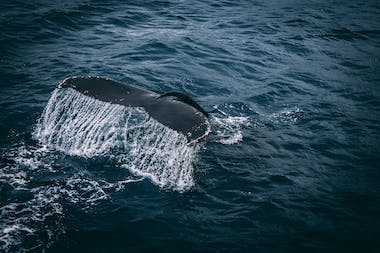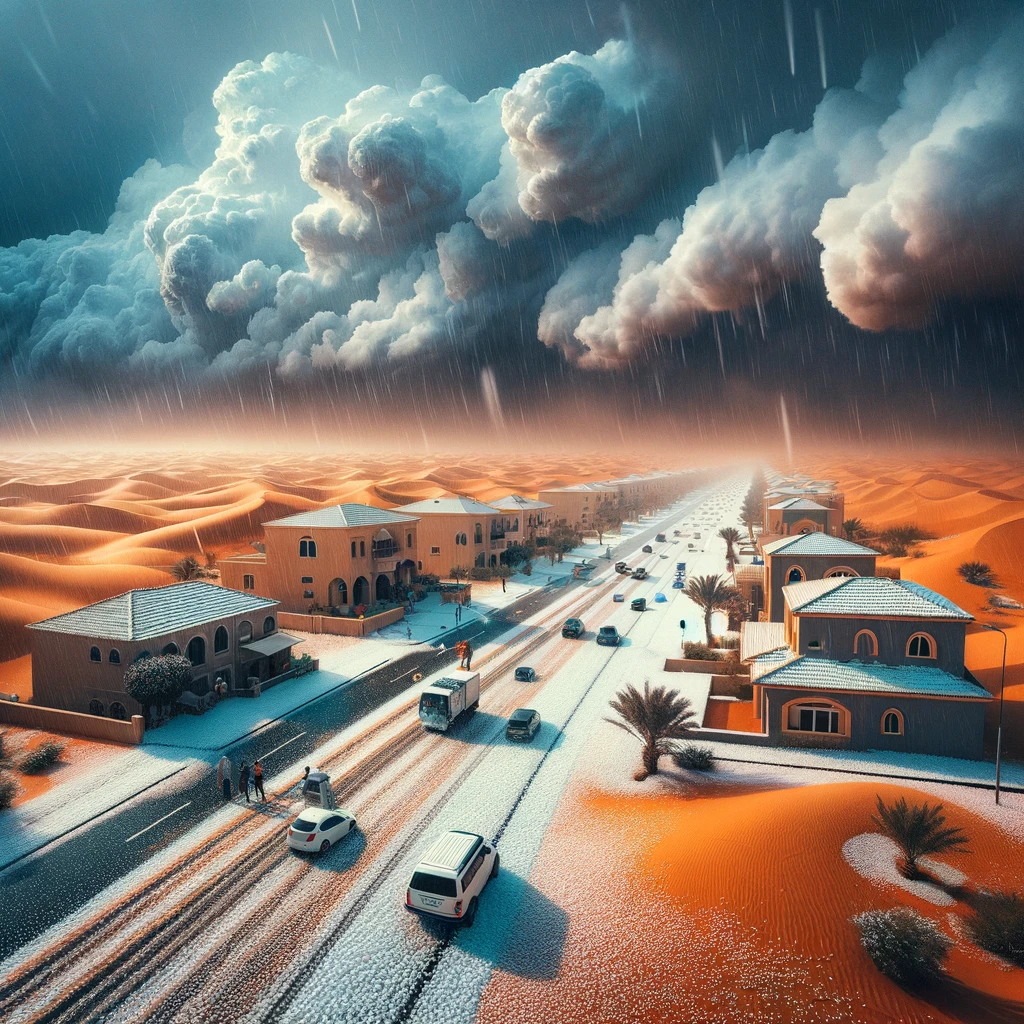The oceans are getting really hot, and that’s not good news for our planet. The European Union’s climate change service, Copernicus, says that the average temperature of the ocean’s surface has reached a new record high. This is bad because it can mess up the Earth’s climate and the animals that live in the ocean.
The ocean does a lot of important things for our planet. It helps control the climate, makes oxygen, and affects the weather. But when the water gets warmer, it can’t absorb as much carbon dioxide. That means there’s more of this gas in the air, which makes the planet even hotter. Hotter oceans can also make ice melt faster, which causes the sea levels to rise.
The hotter oceans are also causing problems for the animals that live in them. Fish and whales have to move to cooler waters, which messes up the food chain. This can affect the amount of fish we have to eat, and it can make some animals, like sharks, more aggressive. Coral reefs are also in danger because they’re turning white and dying in many places, like Florida.
It’s especially worrying that the ocean is getting so hot right now. Usually, March is the warmest month for the ocean, not August. This makes scientists concerned about how much hotter the ocean will get in the next few months. They think that climate change is to blame for the increase in ocean temperatures because the ocean absorbs a lot of the heat from greenhouse gases.
The last record for ocean temperature was set in 2016 during a climate event called El Niño. Another El Niño is happening now, but it’s not as strong. However, scientists think that ocean temperatures will keep going up in the next few months. This year, there have already been a lot of heatwaves in the ocean in different places like the UK, the North Atlantic, the Mediterranean, and the Gulf of Mexico.
Even though the air has been getting hotter, the ocean takes longer to warm up. But now it seems like the ocean is catching up. Some scientists think that a lot of the heat has been hiding in the deep parts of the ocean and is now coming up to the surface. They think this might be connected to El Niño, but they’re still trying to figure it out.
Scientists are still studying why the ocean is getting so hot. They knew that greenhouse gases would make the ocean warmer, but they didn’t expect it to happen so fast. They’re trying to understand more about what’s going on and what it means for our planet.
Original news source: Ocean heat record broken, with grim implications for the planet (BBC)
Listen
Slow
Normal
Fast
Group or Classroom Activities
Warm-up Activities:
– News Summary
Instructions: Have students read the article and write a summary of the main points in their own words. They should focus on the causes and effects of the ocean’s rising temperature. After they have finished, have them share their summaries with a partner and discuss any similarities or differences they found.
– Opinion Poll
Instructions: Divide the class into small groups and give each group a set of questions related to the article. The questions should ask for their opinions on the topic, such as “Do you think climate change is the main cause of the rising ocean temperatures?” or “What do you think should be done to protect the oceans?” Have the groups discuss and answer the questions together, then have each group present their opinions to the class.
– Word Association
Instructions: Write the word “ocean” on the board and have students brainstorm as many words or phrases related to the ocean as they can in two minutes. After the time is up, have students take turns sharing their words or phrases and explain why they chose them. Encourage them to think about words related to the article, such as “temperature,” “climate change,” “animals,” and “coral reefs.”
– Sketch It
Instructions: Divide the class into pairs and give each pair a sheet of paper and a pencil. One student should describe a scene from the article, such as “a coral reef turning white and dying,” while the other student tries to sketch it based on the description. After they have finished, have them switch roles and repeat the activity with another scene from the article. Finally, have each pair share their sketches with the class and explain what scene they were trying to depict.
– Future Predictions
Instructions: Have students imagine that they are scientists studying the rising ocean temperatures. In small groups, have them discuss and make predictions about what might happen in the future if the ocean continues to get hotter. They should consider both the environmental and human impacts. After they have finished, have each group share their predictions with the class and discuss any similarities or differences they found.
Comprehension Questions:
1. What does the European Union’s climate change service, Copernicus, say about the average temperature of the ocean’s surface?
2. Why is it bad news for our planet that the oceans are getting hotter?
3. What are some important things that the ocean does for our planet?
4. How does warmer water affect the amount of carbon dioxide in the air?
5. How do hotter oceans contribute to rising sea levels?
6. What problems are hotter oceans causing for the animals that live in them?
7. Why are scientists particularly concerned about the ocean getting hotter right now?
8. What are scientists trying to understand about the ocean getting hotter and its impact on our planet?
Go to answers ⇩
Listen and Fill in the Gaps:
The oceans are getting really hot, and that’s not good news for our planet. The European Union’s (1)______ change service, Copernicus, says that the (2)______ temperature of the ocean’s surface has reached a new record high. This is bad because it can mess up the Earth’s climate and the animals that live in the ocean.
The ocean does a lot of important things for our planet. It helps control the climate, makes oxygen, and (3)______ the weather. But when the water gets warmer, it can’t absorb as much carbon (4)______. That means there’s more of this gas in the air, which makes the planet even hotter. Hotter oceans can also make ice melt faster, which causes the sea levels to rise.
The hotter oceans are also causing problems for the (5)______ that live in them. Fish and (6)______ have to move to cooler (7)______, which messes up the food chain. This can affect the amount of fish we have to eat, and it can make some animals, like sharks, more aggressive. Coral reefs are also in danger because they’re turning (8)______ and dying in many places, like Florida.
It’s especially worrying that the ocean is getting so hot right now. Usually, March is the warmest month for the ocean, not August. This makes scientists concerned about how much hotter the ocean will get in the next few months. They think that climate change is to blame for the increase in ocean temperatures because the ocean absorbs a lot of the heat from greenhouse gases.
The last record for ocean temperature was set in 2016 during a climate event called El Niño. Another El Niño is (9)______ now, but it’s not as (10)______. However, (11)______ think that ocean temperatures will keep going up in the next few months. This year, there have already been a lot of heatwaves in the ocean in different places like the UK, the North (12)______, the Mediterranean, and the Gulf of Mexico.
Even though the air has been getting (13)______, the ocean (14)______ longer to warm up. But now it seems like the ocean is catching up. Some scientists (15)______ that a lot of the heat has been hiding in the deep parts of the ocean and is now coming up to the surface. They think this might be connected to El Niño, but they’re still (16)______ to figure it out.
Scientists are still studying why the ocean is getting so hot. They knew that greenhouse gases would make the ocean warmer, but they didn’t expect it to happen so fast. They’re trying to understand more about what’s going on and what it means for our planet.
Go to answers ⇩
Discussion Questions:
Students can ask a partner these questions, or discuss them as a group.
1. What is the problem with the oceans getting hotter?
2. How would you feel if there was less fish to eat because of the hotter oceans?
3. Do you like swimming in the ocean? Why or why not?
4. What do you think will happen if the sea levels keep rising?
5. How would you feel if coral reefs disappeared completely?
6. What is El Niño and how does it affect ocean temperatures?
7. Do you think climate change is the main reason for the increase in ocean temperatures? Why or why not?
8. How do you think the hotter oceans will affect the weather?
9. Why do you think scientists are concerned about the ocean getting hotter in August instead of March?
10. How would you feel if the ocean became too hot to swim in?
11. What do you think can be done to reduce the temperature of the oceans?
12. How do you think the hotter oceans will affect marine animals?
13. Do you think humans are responsible for the increase in ocean temperatures? Why or why not?
14. What do you think scientists can do to better understand why the ocean is getting so hot?
15. How do you think the hotter oceans will affect the Earth’s climate in the long run?
Individual Activities
Vocabulary Meanings:
Match each word to its meaning.
Words:
1. oceans
2. hot
3. climate
4. animals
5. carbon dioxide
6. ice
7. coral reefs
8. scientists
Meanings:
(a) Large bodies of saltwater covering most of Earth
(b) Frozen water
(c) People who study the natural world and how it works
(d) Living creatures that are not plants or humans
(e) The average weather conditions in a region over a long period of time
(f) A gas that is released when we breathe out and when fossil fuels are burned
(g) Structures made of coral that provide habitats for many marine species
(h) Very warm or high in temperature
Go to answers ⇩
Multiple Choice Questions:
1. Why is the increase in ocean temperature bad for our planet?
(a) It can mess up the Earth’s climate and the animals that live in the ocean.
(b) It can make the ocean more colorful.
(c) It can make ice melt slower.
(d) It can make the planet cooler.
2. What important functions does the ocean serve for our planet?
(a) It helps control the climate, makes oxygen, and affects the color of the sky.
(b) It helps control the climate, makes oxygen, and affects the weather.
(c) It helps control the climate, makes carbon dioxide, and affects the weather.
(d) It helps control the climate, makes carbon dioxide, and affects the color of the sky.
3. What happens when the water gets warmer?
(a) It can’t absorb as much oxygen.
(b) It can’t absorb as much nitrogen.
(c) It can’t absorb as much hydrogen.
(d) It can’t absorb as much carbon dioxide.
4. How does the increase in carbon dioxide in the air affect the planet?
(a) It makes the planet even hotter.
(b) It makes the planet cooler.
(c) It makes the planet rain more.
(d) It makes the planet drier.
5. What problems are hotter oceans causing for animals?
(a) They have to move to warmer waters, which messes up the food chain.
(b) They have to move to cooler waters, which improves the food chain.
(c) They have to move to cooler waters, which messes up the food chain.
(d) They have to move to warmer waters, which improves the food chain.
6. What is happening to coral reefs due to hotter oceans?
(a) They’re turning colorful and thriving in many places.
(b) They’re turning white and dying in many places.
(c) They’re turning black and dying in many places.
(d) They’re turning green and thriving in many places.
7. Why are scientists worried about the current increase in ocean temperature?
(a) August is usually the warmest month for the ocean, not March.
(b) The ocean is getting hotter faster than expected.
(c) March is usually the warmest month for the ocean, not August.
(d) The ocean is getting hotter slower than expected.
8. What are scientists trying to understand about the increase in ocean temperature?
(a) They’re trying to understand why it’s happening so slow.
(b) They’re trying to understand why it’s not happening at all.
(c) They’re trying to understand why it’s not affecting the planet.
(d) They’re trying to understand why it’s happening so fast.
Go to answers ⇩
True or False Questions:
1. Warmer oceans can’t absorb as much carbon dioxide, leading to more of this gas in the air and making the planet hotter.
2. The cooling of the oceans is causing problems for marine animals, such as fish and whales, as they have to move to warmer waters, disrupting the food chain.
3. Coral reefs are flourishing as they are turning white and thriving in many places, like Florida.
4. March is usually the coldest month for the ocean, but it is concerning that the ocean is getting so cold in August.
5. Colder oceans can cause ice to melt faster, resulting in rising sea levels.
6. Scientists are studying why the ocean is warming so rapidly and trying to understand the implications for our planet.
7. Climate change is believed to be the cause of the increase in ocean temperatures, as the ocean absorbs heat from greenhouse gases.
8. The average temperature of the ocean’s surface has reached a new record high, according to the European Union’s climate change service.
Go to answers ⇩
Write a Summary:
Write a summary of this news article in two sentences.
Check your writing now with the best free AI for English writing!
Writing Questions:
Answer the following questions. Write as much as you can for each answer.
Check your answers with our free English writing assistant!
1. Why is it bad news that the oceans are getting hotter?
2. How does warmer water affect the amount of carbon dioxide in the air?
3. What are some of the negative effects of hotter oceans on animals?
4. Why are scientists worried about the current increase in ocean temperatures?
5. What are scientists trying to figure out about the ocean’s increasing temperature?
Answers
Comprehension Question Answers:
1. What does the European Union’s climate change service, Copernicus, say about the average temperature of the ocean’s surface?
Copernicus says that the average temperature of the ocean’s surface has reached a new record high.
2. Why is it bad news for our planet that the oceans are getting hotter?
It is bad news because it can mess up the Earth’s climate and the animals that live in the ocean.
3. What are some important things that the ocean does for our planet?
The ocean helps control the climate, makes oxygen, and affects the weather.
4. How does warmer water affect the amount of carbon dioxide in the air?
When the water gets warmer, it can’t absorb as much carbon dioxide. That means there’s more of this gas in the air, which makes the planet even hotter.
5. How do hotter oceans contribute to rising sea levels?
Hotter oceans make ice melt faster, which causes the sea levels to rise.
6. What problems are hotter oceans causing for the animals that live in them?
Hotter oceans are causing fish and whales to move to cooler waters, which messes up the food chain. It can affect the amount of fish we have to eat, and it can make some animals, like sharks, more aggressive. Coral reefs are also turning white and dying in many places.
7. Why are scientists particularly concerned about the ocean getting hotter right now?
Usually, March is the warmest month for the ocean, not August. This makes scientists concerned about how much hotter the ocean will get in the next few months. They think that climate change is to blame for the increase in ocean temperatures because the ocean absorbs a lot of the heat from greenhouse gases.
8. What are scientists trying to understand about the ocean getting hotter and its impact on our planet?
Scientists are still studying why the ocean is getting so hot. They knew that greenhouse gases would make the ocean warmer, but they didn’t expect it to happen so fast. They’re trying to understand more about what’s going on and what it means for our planet.
Go back to questions ⇧
Listen and Fill in the Gaps Answers:
(1) climate
(2) average
(3) affects
(4) dioxide
(5) animals
(6) whales
(7) waters
(8) white
(9) happening
(10) strong
(11) scientists
(12) Atlantic
(13) hotter
(14) takes
(15) think
(16) trying
Go back to questions ⇧
Vocabulary Meanings Answers:
1. oceans
Answer: (a) Large bodies of saltwater covering most of Earth
2. hot
Answer: (h) Very warm or high in temperature
3. climate
Answer: (e) The average weather conditions in a region over a long period of time
4. animals
Answer: (d) Living creatures that are not plants or humans
5. carbon dioxide
Answer: (f) A gas that is released when we breathe out and when fossil fuels are burned
6. ice
Answer: (b) Frozen water
7. coral reefs
Answer: (g) Structures made of coral that provide habitats for many marine species
8. scientists
Answer: (c) People who study the natural world and how it works
Go back to questions ⇧
Multiple Choice Answers:
1. Why is the increase in ocean temperature bad for our planet?
Answer: (a) It can mess up the Earth’s climate and the animals that live in the ocean.
2. What important functions does the ocean serve for our planet?
Answer: (b) It helps control the climate, makes oxygen, and affects the weather.
3. What happens when the water gets warmer?
Answer: (d) It can’t absorb as much carbon dioxide.
4. How does the increase in carbon dioxide in the air affect the planet?
Answer: (a) It makes the planet even hotter.
5. What problems are hotter oceans causing for animals?
Answer: (c) They have to move to cooler waters, which messes up the food chain.
6. What is happening to coral reefs due to hotter oceans?
Answer: (b) They’re turning white and dying in many places.
7. Why are scientists worried about the current increase in ocean temperature?
Answer: (c) March is usually the warmest month for the ocean, not August.
8. What are scientists trying to understand about the increase in ocean temperature?
Answer: (d) They’re trying to understand why it’s happening so fast.
Go back to questions ⇧
True or False Answers:
1. Warmer oceans can’t absorb as much carbon dioxide, leading to more of this gas in the air and making the planet hotter. (Answer: True)
2. The cooling of the oceans is causing problems for marine animals, such as fish and whales, as they have to move to warmer waters, disrupting the food chain. (Answer: False)
3. Coral reefs are flourishing as they are turning white and thriving in many places, like Florida. (Answer: False)
4. March is usually the coldest month for the ocean, but it is concerning that the ocean is getting so cold in August. (Answer: False)
5. Colder oceans can cause ice to melt faster, resulting in rising sea levels. (Answer: False)
6. Scientists are studying why the ocean is warming so rapidly and trying to understand the implications for our planet. (Answer: True)
7. Climate change is believed to be the cause of the increase in ocean temperatures, as the ocean absorbs heat from greenhouse gases. (Answer: True)
8. The average temperature of the ocean’s surface has reached a new record high, according to the European Union’s climate change service. (Answer: True)
Go back to questions ⇧















